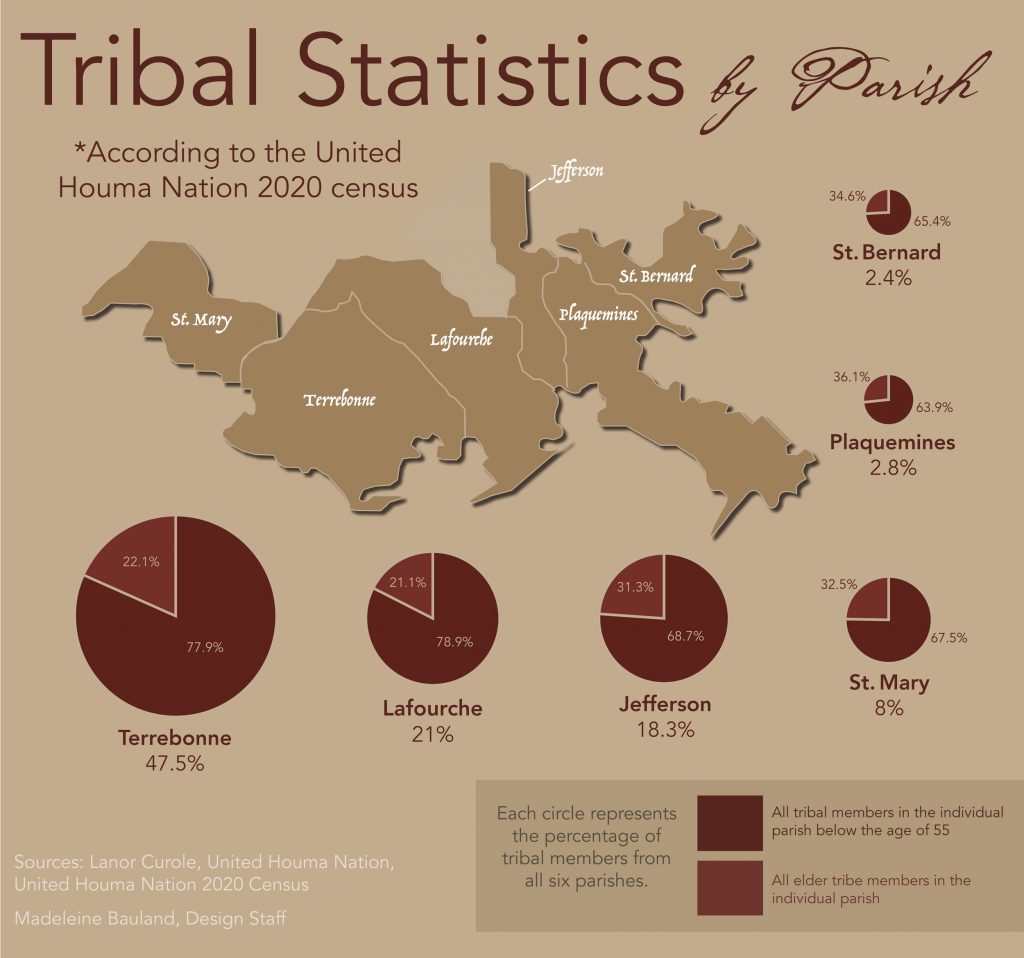By brody gannon, staff writer
Membership in the United Houma Nation is more than a title. It means more than the information printed on a tribal roll card.
Becoming a member of the United Houma Nation is difficult, however. In 2014,tribal rolls were closed to all applicants over the age of five and the enrollment office only processes applications for enrollment from children of already enrolled tribal citizens, prior to the child’s fifth birthday, according to the United Houma Nation’s website.
“Those Tribal Rolls were closed because we are pursuing federal recognition,” says Roxanna Foret, Tribal Councilwoman for district six. “In the eyes of the government, it looks suspicious for there to be huge influxes of people being added to our books. When we receive federal recognition, we plan to open our books fully to anyone who wishes to apply for membership.“
UHN enrollment staff maintain a database containing genealogical data of all citizens.
“When our books are opened back up, if your parents are not registered as Houma citizens, you can track your ancestry to prove you have Houma blood,” says Vice Principal Chief Donny Verdin.
Verdin says having an option for those who do not have registered Houma parents is important to be inclusive of people who did not have a family active in UHN affairs.
The physical aspect of being a registered member of the UHN is important, but the emotional significance can have a far-reaching impact on people’s lives.
“It means a lot to be a member of the UHN,” says Foret. “My dad and stepdad have always been involved with UHN activities, and it has just been a big part of my life. Actually, I almost care about it a little more because my two oldest children were not registered before they were five. I don’t want to take it for granted.”
She wants to stay active among the UHN community and help receive federal recognition so her two oldest children can become registered citizens.
“I was registered as a UHN citizen shortly after birth. We’ve had a lot of struggles, but our community is so beneficial to our members,” Verdin says.
“Keeping our language and traditions alive gives hope that we won’t be forgotten in the future.”

